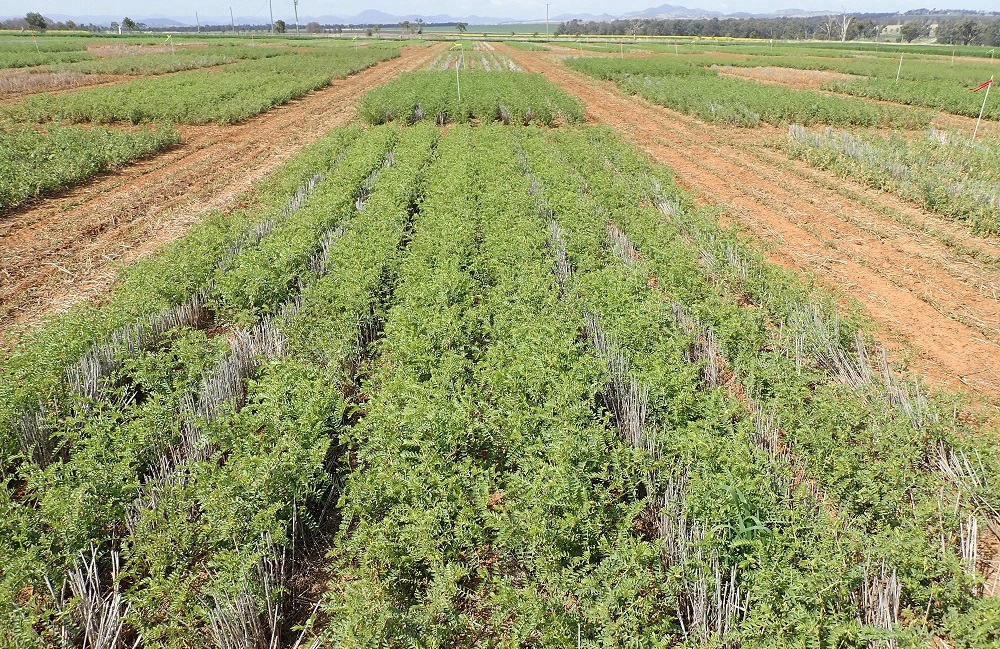
Good results in chickpea disease management trials
14 Sep 2020

Research aimed at helping northern growers protect chickpea production is showing promising results in trials at the NSW Department of Primary Industries’ (DPI) Tamworth Agricultural Institute.
NSW DPI Plant Pathologist, Dr Kevin Moore said following the long drought Ascochyta blight can be the most damaging disease to impact chickpea production.
“The trial includes chickpea varieties currently grown throughout the northern growing region from Dubbo through to Central QLD,” Dr Moore said.
“The aim is to develop Ascochyta blight management packages for chickpea varieties that match a variety’s resistance to Ascochyta.
“A chickpea variety rated Very Susceptible to Ascochyta, for example Kyabra, will require more intensive management, closer monitoring and more fungicide applications, than a variety with greater resistance, such as PBA Seamer.
“As Ascochyta blight resistance increases, the reliance on fungicides decreases.
“The trial was inoculated in July 2020 with a cocktail of Ascochyta blight isolates collected from grower’s crops over the past 10 seasons.”
Three management treatments were performed:
- Low Ascochyta – where plots were sprayed with a registered fungicide before inoculation and before rain events;
- High Ascochyta – where plots received no fungicide and were left unprotected; and
- Variety Management Package (VMP) – where plots get their first fungicide spray at half the rate of the Low Ascochyta treatment, based on the variety’s Ascochyta rating
Dr Moore said Kyabra received its first fungicide application at the same time as the Low treatment, before inoculation, whereas PBA Seamer didn’t receive the first VMP application until after four infection cycles.
“The results show disease levels are very high in unprotected Kyabra, with plants almost dead, whereas unprotected PBA Seamer has only low levels of Ascochyta blight, illustrating the importance of resistance and differences between varieties,” Dr Moore said
“Growers are reminded to grow a variety with the highest level of Ascochyta blight resistance suitable for their area.”
Higher res photos available email anne.brook@dpi.nsw.gov.au
Media contact: Anne Brook 0477 358 305

